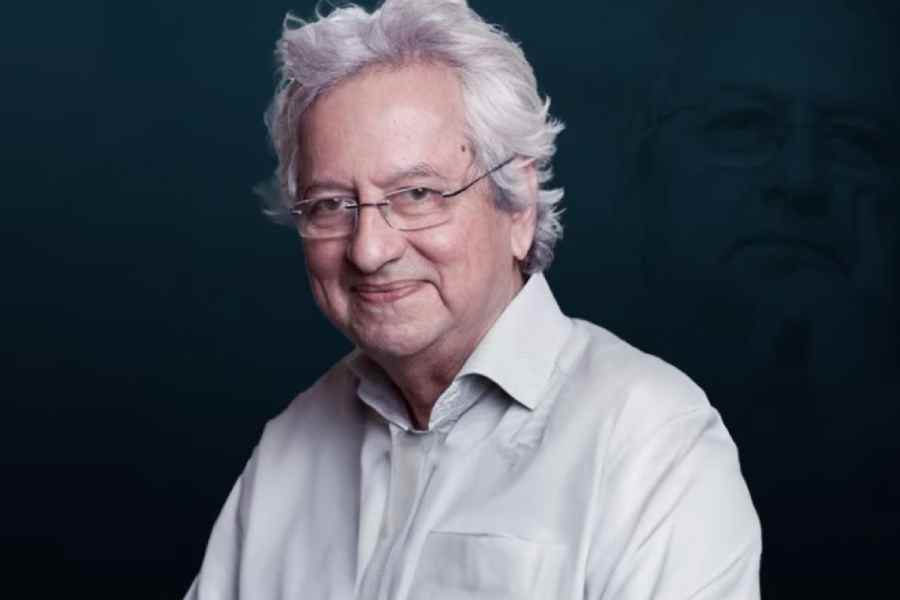The pundits no doubt would argue long over Kumar Shahani’s cinematic legacy. I would not enter that domain; but I would like to write about a friend whose integrity, courage and honesty were unparallelled and whose death leaves the world with one less outstanding human being. Kumar was a ‘sixty-eighter’, a person resident in Europe and participating in the Left upsurge that shook that continent in the late Sixties and reached its climax in May ‘68 in Paris. He was working there with the French film director, Robert Bresson, after graduating from the Pune Film Institute where he had come under the influence of Ritwik Ghatak, and he was swept into the heady revolutionary politics of the time. The sixty-eighters alas are now departing rapidly; Kumar was the fourth sixty-eighter among my personal friends, after Suneet Chopra, the CPI(M) leader, Vivan Sundaram, the painter and installation artist, and Anil Bhatti, the scholar of German Studies, to have passed away in just the last few months.
I did not know Kumar at that time. My first meeting with him was at an event organised by the Safdar Hashmi Memorial Trust in Ahmedabad, to protest against the demolition of the Babri masjid, and attended by a large number of exceptionally bright and enthusiastic students belonging to the National Institute of Design and the School of Planning and Architecture. We both spoke there, and Kumar with his soft voice, careful diction, and deeply thoughtful ideas, which included, rather intriguingly, a disquisition on cotton (on which he had planned for long to make a film, though, alas, it never got made), was a big hit; in the evening, the Architecture students took us to their workshops where they showed us the various projects they were working on. Kumar’s charisma and ability to inspire young minds were in ample evidence.
Apart from Marxism and Left politics, Kumar and I had another common interest: D.D. Kosambi, the brilliant mathematician and polymath who pioneered the scientific study of Indian history with his two seminal works: An Introduction to the Study of Indian History and The Culture and Civilisation of Ancient India in Historical Outline. If I am not mistaken, their initial acquaintance was forged on the Deccan Queen, the iconic train between Pune and Mumbai, which they both took for a time; but Kosambi left a deep and permanent impression on Kumar which was an intriguing phenomenon in the life of a film-maker, highlighting the kind of film-maker that Kumar was.
Kumar was remarkably well-read and well-informed and had an amazing array of friends, from childhood playmates who became co-students at Elphinstone College, Mumbai, like the economist, Nitin Desai, to European comrades from the Sixties and, of course, numerous film and theatre personalities with whom he was closely associated, both personally and professionally. Once when I was having coffee with my family at the Indian International Centre, Delhi, Kumar entered the room with a friend whom he introduced to us as Ralph Schoenman. Schoenman was an American Leftist who later became the personal secretary of Bertrand Russell and, in that capacity, also the secretary and moving spirit behind the famous Bertrand Russell War Crimes Tribunal whose members had included, apart from Russell himself, Jean-Paul Sartre, Vladimir Dedijer, Laurent Schwartz and others. It had assessed evidence against the United States of America with regard to the charge of committing war crimes in Vietnam. Schoenman had been viciously attacked by the British press for ‘distorting’ Russell’s mind and robbing him of all sound judgement. I realised when I saw them together just how wide was the range of Kumar’s friendships.
There was a time when Kumar had wanted to settle down in Kerala and set up an institute there. This was the period when I came in close contact with him as I was working in Kerala at the time. He had an exciting proposal and the Left Democratic Front government of Kerala had sanctioned some seed money for the proposed institute. But the project needed a person of financial acumen and administrative ability who could look after its execution and complement Kumar as a creative person immersed in the world of ideas; such an administrator, alas, could not be found in time and the project eventually fell through.
Like this one, Kumar’s life was punctuated with an array of unfinished projects. A brilliant and engaged film-maker, he made iconic films that included Maya Darpan, Tarang, Kasba, Khayal Gatha, and Tagore’s Char Adhyay, but there were also a number of projects that he nurtured which remained incomplete. His absolute and honourable refusal to make even the slightest compromise, whether in the matter of ideology or in his film-making, was certainly an important reason for these projects remaining unfinished accounting for his select oeuvre.
As one would expect, Kumar was both baffled and appalled by the grotesque opportunism and hypocrisy that are so much a part of contemporary Indian society and that permeate Indian capitalism, making it so shoddy and devoid even of the quality that its Western counterpart has had. He would occasionally remark to me: “What sort of capitalism are we building, Prabhat?”
Warm, generous, gentle, brilliant, and uncompromising on principles, Kumar almost appeared to belong to an earlier, bygone era when living according to one’s convictions was the rule rather than an exception. But Kumar would have scoffed at this suggestion; he would have seen the chicanery of our contemporary life as a transient phenomenon that we would eventually transcend.
Prabhat Patnaik is Professor Emeritus, Centre for Economic Studies and Planning, Jawaharlal Nehru University, New Delhi

